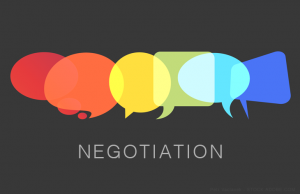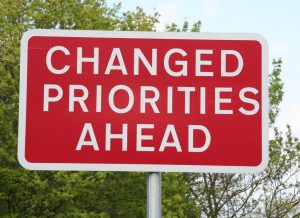 As we approach a holiday weekend and the rollout of summer, now is a good time to take concrete steps to give your brain a break. “A break from what?” You may ask. A break from being “on” and in hyper-alert mode for four months straight.
As we approach a holiday weekend and the rollout of summer, now is a good time to take concrete steps to give your brain a break. “A break from what?” You may ask. A break from being “on” and in hyper-alert mode for four months straight.
I’m willing to bet that most of our brains could use a break. For weeks now, they’ve been scanning the news, scrolling through apps, ingesting forecasts, responding to texts, sifting through email, sitting on video conference calls, monitoring chat threads, reviewing to-do lists, and ruminating over what we haven’t been able to accomplish at work.
Giving your brain a break is like taking a mental vacation. You want to let your brain rest and restore itself, rather than constantly pressuring it to react and respond to all of the information and tasks it’s been holding. Giving your brain a break is crucial because every mind needs time for reflection and regeneration. Your mind needs rest now so that it can help you do your best work and make your best decisions in the near future.
Here are a few simple (but not easy) things you can do to give your brain a break:
- Take a vacation from the news – Much of the news we ingest is designed to get our attention – it’s sensational. Overtime, it inflames and agitates the brain’s nervous system. If you can, refrain from consuming news for an entire day or a weekend. If you can’t do that, try limiting your intake to once in the morning and once in the evening.
- Take a break from social media – This means staying away from social media for a day or two. Some people take week-long breaks. Try taking a picture of your family and NOT posting it immediately. Or play a round of miniature golf, and don’t message anyone while you’re playing so that your brain can be present for the whole experience.
- Spend time in nature – Time spent in a natural setting walking, picnicking, hiking, swimming, biking or simply sitting and taking in fresh air is a balm for the brain. Listening to the sounds of nature – water rushing, birds chirping, leaves rustling – also helps the mind relax and refresh.
- Put your unsolved problems in a box – This technique is designed to help you let go of those problems that cannot be solved by ruminating on them. It’s an interesting exercise in letting go – if only for 24 hours. Write down an unsolved problem and put it in a physical box or container. Consider it an act of decluttering your brain. You will free up space for more creative ideas.
- Immerse yourself in music or art – Playing music you love, taking in art or photography or film that you are passionate about can relax your mind and release emotions. It’s especially helpful to the emotional sections of the brain that benefit from soothing sounds and beautiful images.
- Do something that makes you laugh a lot – Is there a movie you find hysterical? A writer who cracks you up? A comedian who you find endlessly funny? Maybe there’s a friend whose humor brings you to tears (of laughter). Laughter is a great release and relaxant for the brain. Whatever tickles your funny bone, do it.
During the last four months, our brains have been working overtime. We’ve used them to handle the pandemic, to respond to social, political and economic upheaval. We’ve used them to plan our days, take care of our loved ones, show up for work, and do the best that we can under strange and adverse conditions. I invite you to apply these ideas (or your own) to give your brain the rest it needs. It will thank you.
Katherine Crowley – Career Therapist and co-owner of K Squared Enterprises.
Contact us at info@mycrazyoffice.co for any further help around this topic.

 What are you negotiating for at work? Is it a promotion? A raise?
What are you negotiating for at work? Is it a promotion? A raise? The past few months of weathering the pandemic, and living with social, political and economic upheaval, have also acted as a time for reflection and reconsideration of what really matters to us. Where ever you are in your career, you may be re-calibrating your priorities.
The past few months of weathering the pandemic, and living with social, political and economic upheaval, have also acted as a time for reflection and reconsideration of what really matters to us. Where ever you are in your career, you may be re-calibrating your priorities.  A social contract is an unofficial agreement shared by everyone in a society in which they give up some freedom for security. The philosopher Jean-Jacques Rousseau popularized the idea of the social contract in the 1700s, but it’s just as applicable today. A good example is when we go to the airport and go through security. We may not like it, but we understand that it’s a freedom we give up for the benefit of safety in our society.
A social contract is an unofficial agreement shared by everyone in a society in which they give up some freedom for security. The philosopher Jean-Jacques Rousseau popularized the idea of the social contract in the 1700s, but it’s just as applicable today. A good example is when we go to the airport and go through security. We may not like it, but we understand that it’s a freedom we give up for the benefit of safety in our society. With all of the upheaval and uncertainty we are facing, it can be more challenging than ever to be in the present moment.
With all of the upheaval and uncertainty we are facing, it can be more challenging than ever to be in the present moment. You are probably facing some difficult conversations at work regarding Diversity, Equity and Inclusion (DEI). If not, you should be. Now is the time.
You are probably facing some difficult conversations at work regarding Diversity, Equity and Inclusion (DEI). If not, you should be. Now is the time.  As some of the restrictions due to the COVID-19 pandemic begin to lift, and some people cautiously begin to return to their work environments, we are tasked with the job of managing yet another period of transition. It is the transition from the safety and predictability of our quarantined home environments to the uncertainty and potential risks of the outside world.
As some of the restrictions due to the COVID-19 pandemic begin to lift, and some people cautiously begin to return to their work environments, we are tasked with the job of managing yet another period of transition. It is the transition from the safety and predictability of our quarantined home environments to the uncertainty and potential risks of the outside world. In just a matter of days, the coronavirus pushed people inside their homes, accelerating a digital transformation around the world.
In just a matter of days, the coronavirus pushed people inside their homes, accelerating a digital transformation around the world.

Looking to advertise with us?
We have sponsorships available on the My Crazy Office Podcast.
Please email us at info@mycrazyoffice.co.